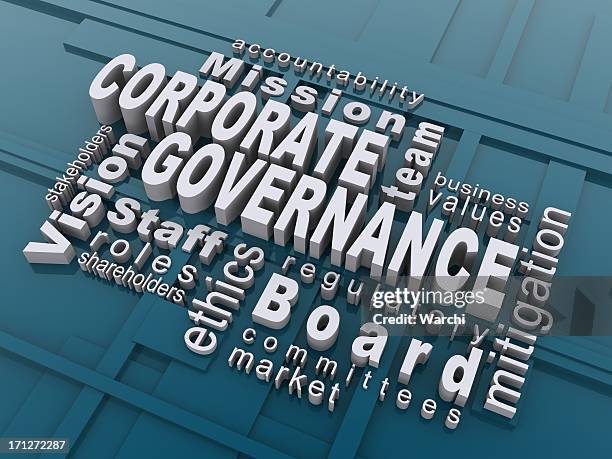An in-depth analysis of institutional integrity, boardroom accountability, and the path to investor confidence across the continent
Corporate governance—the framework of rules, practices, and processes by which companies are directed and controlled—has long been treated as a Western import in Africa. Yet across the continent, and especially in Nigeria, a quiet transformation is underway. Driven by regulatory reforms, youthful digital activism, and a new generation of boardroom leaders, African nations are redefining what ethical, transparent, and effective corporate stewardship looks like in emerging economies. This shift isn’t merely about compliance; it’s about survival, competitiveness, and reclaiming economic sovereignty in a globalized marketplace.
The Continental Landscape: Fragmented Progress, Rising Stakes
Africa’s corporate governance journey is as diverse as its 54 nations. South Africa leads with the King IV Report, a globally respected code that emphasizes ethical leadership and integrated reporting. Kenya, Rwanda, and Ghana have made strides through capital market reforms and mandatory disclosure requirements. Yet much of the continent still grapples with weak enforcement, political interference, and family-controlled conglomerates where board independence is more theoretical than real.
According to the African Development Bank (AfDB), only 38% of listed firms in Sub-Saharan Africa meet basic governance benchmarks on board composition and audit transparency. The cost? Persistent capital flight, depressed valuations, and investor skepticism—even as Africa’s private sector grows faster than any other region’s.
But governance isn’t just a technical issue; it’s cultural. In many African societies, communal decision-making and hierarchical respect can clash with Western notions of dissenting board voices or whistleblower protections. The challenge, then, is not to mimic OECD models, but to build contextually rooted systems that marry accountability with African values of consensus and stewardship.
Nigeria: The Crucible of Change
Nowhere is this tension—and potential—more evident than in Nigeria, Africa’s largest economy and most populous nation. Historically, Nigerian corporations have been shadowed by scandals: from the $2 billion arms procurement fraud to the collapse of Afribank and Savannah Bank due to insider lending and weak oversight. Public trust in institutions remains fragile.
Yet since 2011, Nigeria has quietly engineered a governance renaissance. The Securities and Exchange Commission (SEC) introduced the Code of Corporate Governance for Public Companies, mandating independent directors, risk committees, and gender diversity targets. The Central Bank of Nigeria (CBN) followed with stringent governance directives for banks post-2009 crisis. Most notably, the Nigerian Stock Exchange (now NGX Group) delisted chronically non-compliant firms, sending a clear market signal: governance matters.
Recent data from the Financial Reporting Council of Nigeria (FRCN) shows that 72% of top-tier listed companies now publish sustainability reports—a 40% increase since 2018. Firms like Dangote Group, MTN Nigeria, and Zenith Bank have appointed non-executive chairs, established whistleblower channels, and tied executive pay to ESG metrics.
But structural hurdles persist. Only 18% of board seats in Nigeria’s top 100 firms are held by women. Political patronage still influences appointments in state-owned enterprises like NNPC and the Nigerian Ports Authority. And while laws exist, enforcement remains inconsistent—often dependent on the zeal of individual regulators rather than systemic mechanisms.
Tech, Youth, and Global Pressure
What’s accelerating change isn’t just regulation—it’s disruption. Nigerian fintechs like Flutterwave and Opay, backed by global venture capital, operate under intense scrutiny from international investors who demand OECD-level governance from day one. Their success is forcing legacy firms to adapt or risk obsolescence.
Meanwhile, a digitally connected youth population is holding corporations accountable like never before. Social media campaigns have exposed environmental violations by oil firms and gender pay gaps in telecoms. In 2023, a viral #AuditNNPC movement pressured the state oil company to release its first-ever audited financial statements.
Internationally, the EU’s Corporate Sustainability Reporting Directive (CSRD) and U.S. supply chain due diligence laws mean African exporters must now prove ethical sourcing and board oversight—or lose access to lucrative markets. Governance is no longer optional; it’s a trade prerequisite.
Beyond Compliance to Culture
For Africa—and Nigeria in particular—the next frontier isn’t more codes, but deeper cultural integration. This means:
Embedding ethics in business education: Nigerian universities now offer specialized courses in governance, but practical case studies from local contexts are still scarce.
Empowering minority shareholders: Proxy voting platforms and digital AGMs can democratize oversight.
Leveraging regional bodies: The African Union’s Guidelines on Corporate Governance must move from paper to practice through peer reviews and sanctions.
Rewarding transparency: Tax incentives or preferential listing fees for firms that exceed governance benchmarks could create positive reinforcement.
As Dr. Ngozi Okonjo-Iweala, former Nigerian Finance Minister and WTO Director-General, once noted: “Good governance is not a luxury for developing economies—it is the foundation of development itself.”
Corporate governance in Africa is no longer a footnote in boardroom manuals. It is the bedrock of sustainable investment, inclusive growth, and economic dignity. Nigeria, with its mix of dysfunction and dynamism, offers both a cautionary tale and a blueprint. If the continent can fuse global best practices with indigenous wisdom, it won’t just catch up—it will lead.
Follow us on Instagram.
https://www.instagram.com/businessnewsng?igsh=ZXpweTdjOGF1ZXdu





















